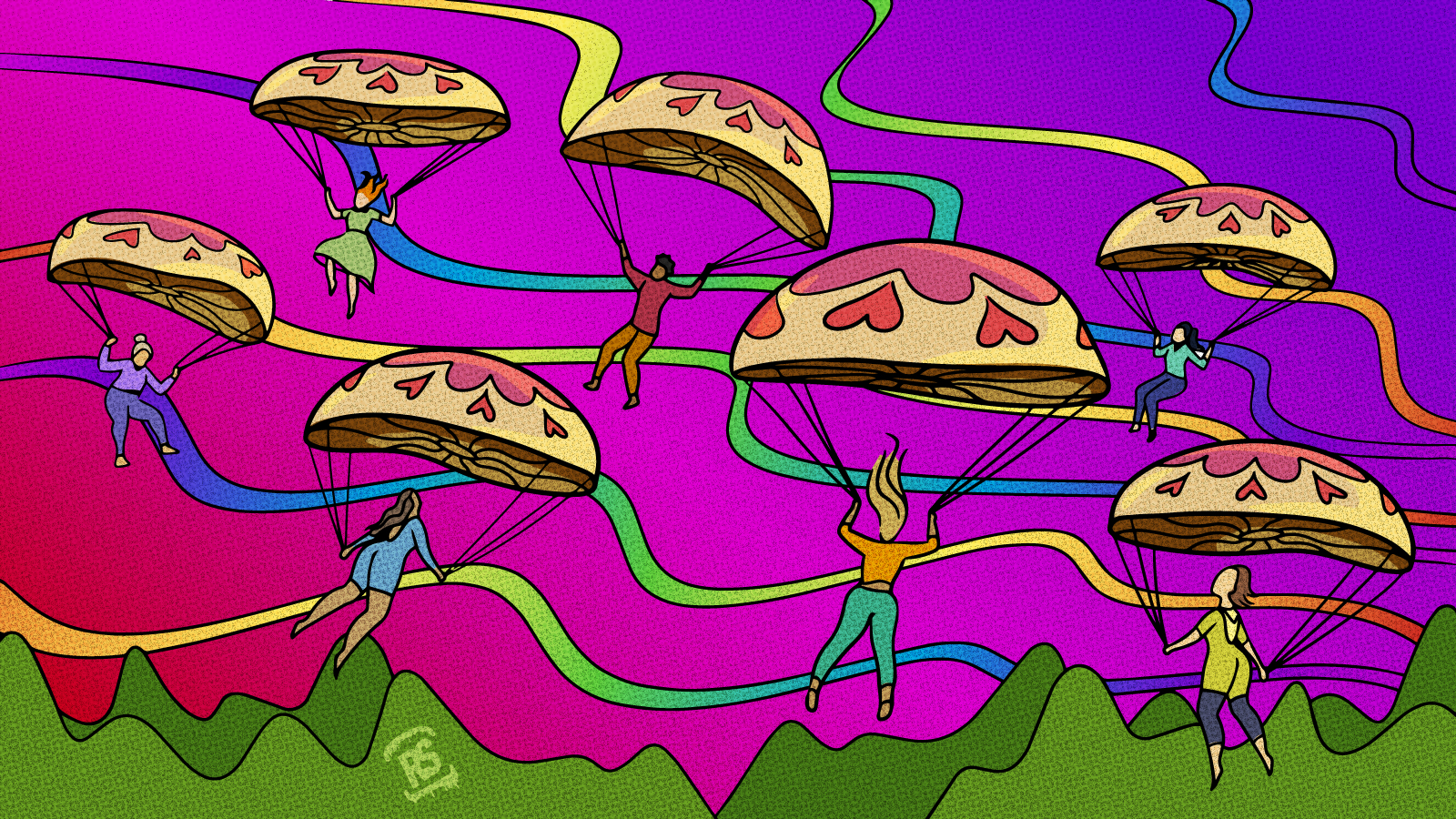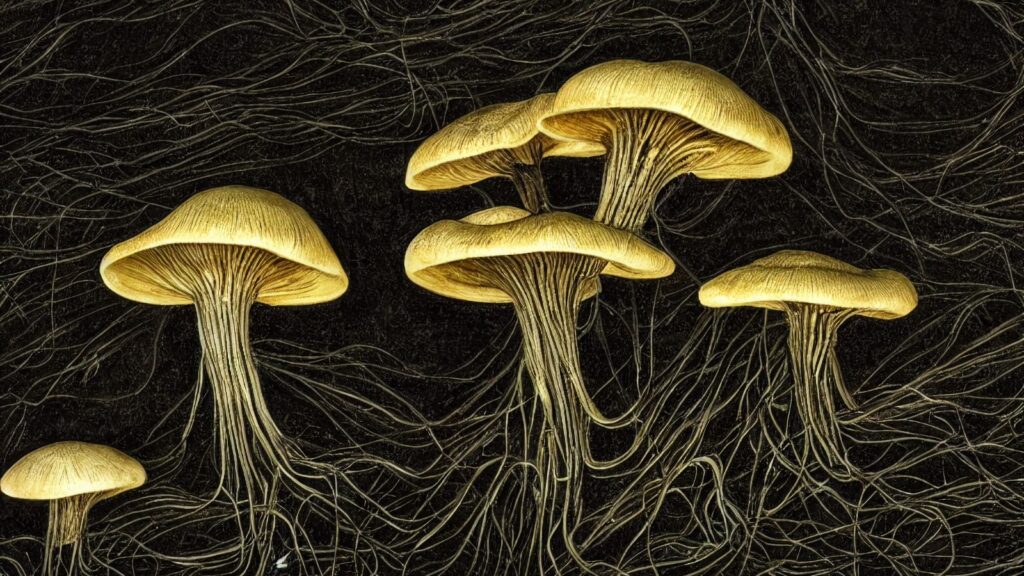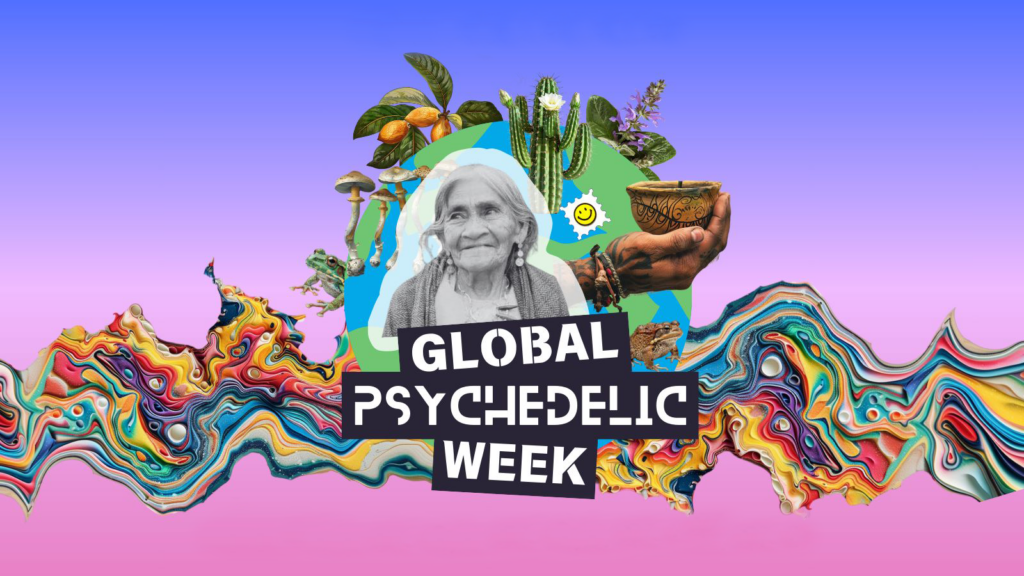In the realm of modern motherhood, where the pressures are high and the expectations even higher, a quiet revolution is underway. Moms across the country are turning to an unexpected ally in their quest for balance and well-being: mushrooms. No, not the culinary kind found in risottos or salads, but rather the psychedelic variety, specifically psilocybin mushrooms.
Moms on mushrooms is not just a trend but also the name of a community championing this effort. In this article, we’ll take a look at the mission of this organization, and examine the phenomenon of moms embracing magic mushrooms for mental and emotional support while navigating the complexities of parenting in the 21st century.
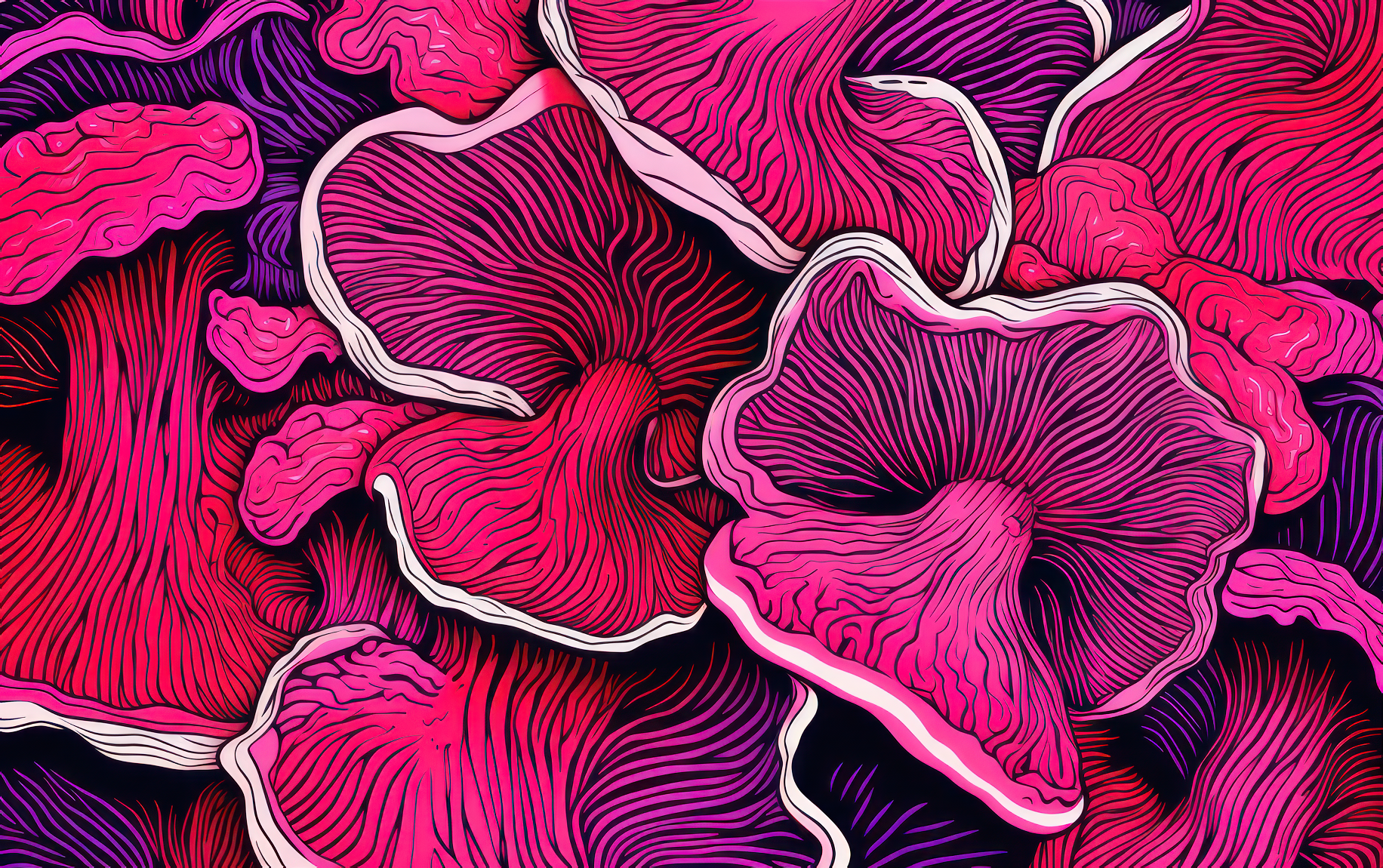
History of Mushrooms and Human Use
Mushrooms have long captivated human curiosity with their unique properties and effects on consciousness. The historical relationship between humans and psychedelic fungi dates back thousands of years, and it is intertwined with diverse cultures and spiritual practices around the world.
Indigenous Rituals and Shamanism
Indigenous cultures across various continents, including Central and South America, Africa, and Asia, have incorporated psychedelic mushrooms into their rituals and spiritual ceremonies for millennia.
These cultures often regarded mushrooms as sacred and used them to induce altered states of consciousness to facilitate communication with spirits, divine entities, and the natural world. Shamanic traditions, in particular, embraced mushrooms as tools for healing, divination, and communal bonding.
Ancient Civilizations
Evidence suggests that ancient civilizations, such as the Aztecs and Maya in Mesoamerica, revered mushrooms for their psychoactive properties. Artifacts and depictions found in archaeological sites depict mushrooms as symbols of fertility, wisdom, and religious significance. Similarly, in ancient Egypt, mushrooms were associated with the god Osiris and were depicted in hieroglyphs and tomb paintings, suggesting their ceremonial use.
Western Discovery and Scientific Exploration
The modern understanding of psychedelic mushrooms traces back to the early 20th century when Western scientists began studying their effects on consciousness. In 1957, the Swiss chemist Albert Hofmann isolated psilocybin, the psychoactive compound in mushrooms, sparking interest in their therapeutic potential. Subsequent research in the 1960s led to the exploration of psychedelics for psychiatric treatment and expanded the understanding of their effects on the brain.
Counterculture Movement and Psychedelic Renaissance
During the 1960s, psychedelic mushrooms gained popularity within the counterculture movement, fueled by figures like Timothy Leary and Terence McKenna, who advocated for their use as tools for personal growth and spiritual enlightenment. However, widespread recreational use led to government crackdowns and the classification of psychedelics as illegal substances, stalling research for decades.
Contemporary Research and Legalization Efforts
In recent years, a resurgence of scientific interest in psychedelics has emerged, with studies exploring their therapeutic potential for mental health conditions such as depression, anxiety, and PTSD. Countries like the United States and Canada have seen a growing movement to decriminalize or legalize psychedelics, reflecting shifting attitudes toward their use and potential benefits.

Why Moms Are Turning to Mushrooms
In the whirlwind of motherhood, characterized by endless responsibilities and societal pressures, more and more women are seeking alternative paths to cope with the stresses of daily life.
Traditional coping mechanisms like wine or prescription medications have become an age-old trope, but a growing number of moms are now turning to mushrooms for a different kind of relief. Here is how mushrooms are offering a unique avenue for mental health, well-being, and personal transformation among mothers.
Mental Health and Well-being
The pursuit of mental well-being is a fundamental aspect of human existence, and mothers, in particular, face a myriad of challenges that can take a toll on their mental health. From the demands of balancing work and family to the pressure to meet societal expectations of motherhood, the stressors can feel overwhelming at times.
In response, many moms are exploring unconventional approaches, such as microdosing psychedelics like psilocybin, as a means of managing anxiety, depression, and overall stress levels.
Research suggests that microdosing, the practice of consuming small, sub-perceptual doses of psychedelics, may have mood-enhancing and stress-reducing effects without the intense psychedelic experiences associated with higher doses.
For moms juggling multiple responsibilities, the prospect of finding relief from the daily grind without the side effects of traditional medications is appealing. By tapping into the therapeutic potential of mushrooms, mothers are finding a new sense of balance and resilience in navigating the challenges of parenthood.
In the video above, mom Mikaela shares her perspective on microdosing psilocybin and how it’s impacted her parenting. “This is just an increase in your sensory awareness. I notice, too, that while I’m microdosing and mothering, my availability of emotions, you know, my availability to cry and my availability to laugh, is a lot more at the surface. So, for some people, that’s an alleviation of depression symptoms, but what we really experience is just an increased sensitivity to the world around us,” says Mikaela, describing her take on microdosing psilocybin.
Mikaela started microdosing when she was about four months pregnant. The decision came when she realized she was grappling with an alcohol abuse disorder, and she did not want to come into parenting with any alcoholism or unconscious use of alcohol. Knowing that psilocybin is a powerful ally in battling substance abuse, she gave it a try after talking it through with a community elder and her partner.
Expanding Consciousness and Parenting Insights
Beyond symptom management, some moms who have experimented with mushrooms report profound shifts in consciousness and insights into their roles as parents. The psychedelic experience has the capacity to dissolve boundaries and reveal new perspectives, allowing mothers to see themselves, their children, and their relationships in a different light.
Through introspection and self-reflection facilitated by mushrooms, moms may uncover
deep-seated patterns, fears, and desires that influence their parenting style and interactions with their children. This newfound awareness can lead to more empathetic and authentic connections with their offspring, fostering a sense of understanding and acceptance within the family dynamic.
“It makes those emotions to connect to my son way more readily available and slows down my desire to react, and instead, I respond to him. It really slows [me] down and helps me get on floor level with him and understand, and I might be able to see how he’s feeling things from his perspective. As opposed to just my perspective and my view of the way that he’s acting…I can respond to him in a better way…it connects me to my inner child.”
-Mikaela
Community and Shared Experiences
In a society where discussions about psychedelics are often met with skepticism or even condemnation, finding a supportive community can be crucial for moms exploring this unconventional path. Fortunately, a growing number of women are coming together to share their experiences, offer guidance, and provide a safe space for open dialogue about psychedelics and motherhood.
These communities serve as a source of solidarity and empowerment, allowing moms to connect with like-minded individuals who understand their journey and offer non-judgmental support. Through shared stories and collective wisdom, mothers on the mushroom path find strength in numbers, forging bonds that transcend societal norms and stigma.
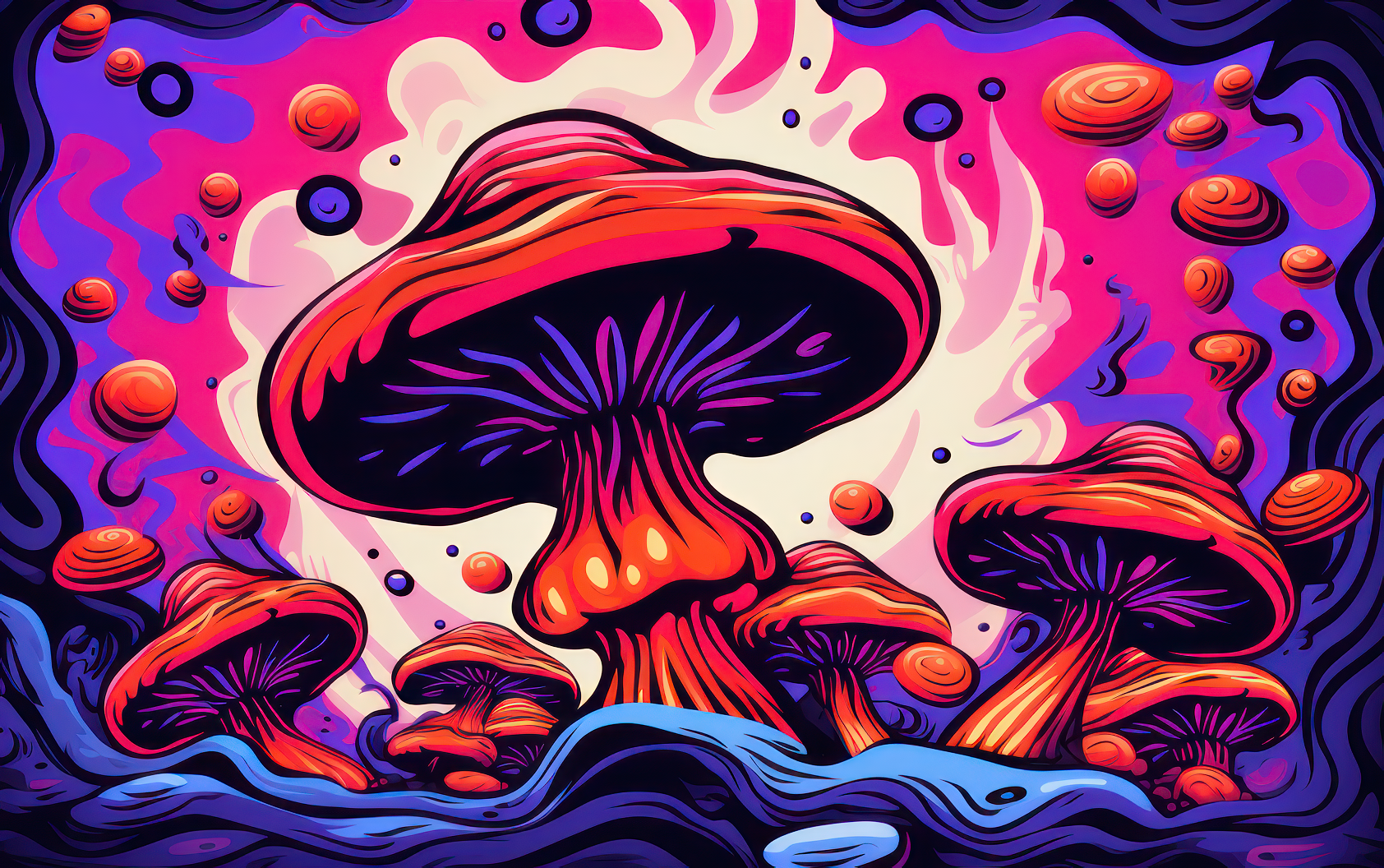
The Risks and Concerns: Balancing Parenthood and Mushroom Use
Amidst the growing interest in mushrooms as a tool for mental health and personal growth, it’s crucial to acknowledge and address the potential risks and concerns associated with their use, especially for mothers navigating the complexities of parenthood. While the benefits of mushrooms may be compelling, it’s essential to approach their consumption with caution and informed decision-making.
Safety Considerations
One of the primary concerns when it comes to mushroom use is safety, particularly in the context of parenting. While mushrooms like psilocybin are generally considered to have a low potential for toxicity and physical harm, their psychoactive effects can vary widely depending on factors such as dosage, individual sensitivity, and environmental conditions.

For mothers considering mushroom use, it’s essential to prioritize safety by thoroughly researching dosage guidelines, sourcing high-quality mushrooms from reputable sources, and creating a supportive environment for the experience. If microdosing, start small and find a pace that works.
For anyone looking to experience larger doses (sans children), having a trusted sober sitter or support person present during the journey can provide reassurance and assistance if needed.
Legal Implications
Another consideration for moms exploring mushrooms is the legal landscape surrounding their use. While attitudes towards psychedelics are evolving, many jurisdictions still classify mushrooms like psilocybin as illegal substances, with severe legal consequences for possession, cultivation, or distribution.
For mothers, the potential legal risks associated with mushroom use must be weighed carefully against the perceived benefits. Engaging in open and honest discussions with legal professionals and understanding the laws governing psychedelics in their jurisdiction can help mothers make informed decisions about whether to incorporate mushrooms into their wellness practices.
Informed Decision-Making
Ultimately, the key to balancing parenthood and mushroom use lies in informed decision-making. Mothers must carefully consider the potential risks and benefits, as well as their personal circumstances and responsibilities, before embarking on a mushroom journey.
Engaging in thorough research, consulting with healthcare professionals, and seeking guidance from experienced practitioners can help mothers navigate the complexities of mushroom use with confidence and clarity. By approaching their psychedelic experiences with intention, mindfulness, and respect for the substance, mothers can minimize risks and maximize the potential for positive outcomes.
Resources for Those Seeking Support: Moms on Mushrooms
M.O.M., or Moms On Mushrooms, is a community dedicated to destigmatizing psychedelics, specifically for moms. Their mission includes promoting safe, intentional, and sacred use of psychedelics, remaining in humble service to others, teaching and promoting reciprocity, responsibility, and respect.
They emphasize education, conversation, and dedication to using plant medicine as an ally rather than a quick fix. M.O.M. is focused on creating a supportive space for mothers to heal and connect, prioritizing health, safety, and respect for the practice. They are not a platform for recreational drug use but rather a mission-driven community centered on education, advocacy, and connection.
For moms who would like to participate in coursework or meet like-minded parents, M.O.M. has an offering that might fit the bill. With an online community, a plethora of group courses, and individual learning opportunities, M.O.M. is a powerful platform for getting started in the world of psychedelics and responsible use.

The Future of Moms and Mushroom Use
As mothers navigate the complexities of modern parenthood, the emergence of mushrooms as a tool for mental and emotional support marks a significant shift in wellness practices. What began as an ancient tradition has evolved into a contemporary movement, with moms embracing psychedelics for their therapeutic potential.
Through microdosing and introspective journeys, mothers are finding relief from the stresses of daily life while gaining profound insights into their roles as parents. Supported by communities like M.O.M., these women are pioneering a new frontier of wellness, one that prioritizes safety, intentionality, and respect for the transformative power of psychedelics.
While the risks and legal implications of mushroom use cannot be overlooked, informed decision-making and responsible practices are essential for mothers seeking to incorporate psychedelics into their wellness routines. With education, advocacy, and a commitment to community, the future of moms and mushrooms is one of empowerment, healing, and collective growth.
